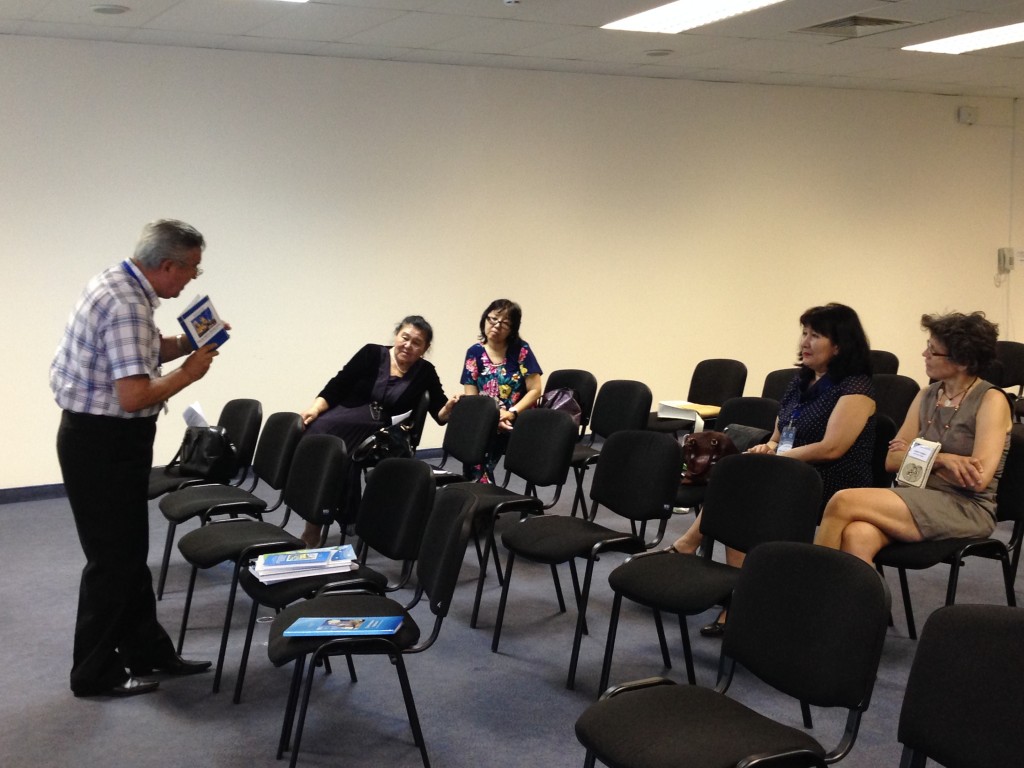ASTANA – The Kazakh National University of Arts in Astana hosted the World Conference of the International Council for Traditional Music (ICTM), the first time the event has been hosted in Central Asia or the Commonwealth of Independent States. The July 16-22 conference attracted an unprecedented number of delegates, ICTM Secretary General Svanibor Pettan said at the conference’s opening session.
“This conference is a historical event. This is the first time the ICTM holds a scholarly conference in a Central Asian country, where different cultures, languages, music, dance and scholarly traditions emerge,” ICTM President Salwa El-Shawan Castelo-Branco said in her opening address to the conference. “We are also looking forward to learning about the rich and varied traditions of this country and of so many neighbouring countries.”
Kazakhstan had the greatest number of delegates to the event, which featured among its panels sessions on traditional Kazakh instruments and songs in a contemporary context; Kazakh epic tradition; Kazakh music in Soviet times; music and dance in Kazakh ceremonies and celebrations; musical education in Kazakhstan; Kazakh song letters during World War II; and workshops on Kazakh music, among other sessions on music in Central Asia and Turkic-speaking countries, in addition to an exhaustive list of global offerings.
Kazakh Deputy Prime Minister Berdibek Saparbayev also addressed the council, saying, “The place of music in the life of our people is so important, because music gives us strength.” He also called music “an ambassador of peace,” noting it brought representatives of 70 countries to Kazakhstan.
“The conference initiated by ICTM carries a very big meaning to the science and culture of Kazakhstan,” said Gulnara Kuzbakova, professor in art history and musicologist of arts faculty at the Kazakh National University of Arts (KazNUA).
According to her, the council was first founded in Europe, to preserve traditional music and dance in the context of urbanisation, globalisation, information and technology development, and from those years on it had a constant interest to expand, making Kazakhstan its choice in 2013.
“Kazakh traditional culture is unknown to the global community, and its traditional music containing thousands of songs and kuys is yet to be explored,” Kuzbakova stressed. Initial sources about Kazakh traditional music, composers and singers were either destroyed or archived. They are available in foreign languages and sources but because Kazakhstan lacks specialists who are focused on traditional music who could study and bring it back to the country there is no access now, the professor said. “A lot of data describing Kazakh traditions could be found on radio, in a newspaper or at a private collection somewhere in France,” she said.
Kuzbakova noted that Kazakh traditional music, arts and culture provoke huge interest in the global community and many foreign delegates and guests attended Kazakh traditional and contemporary arts presentations during the conference. “The whole culture is showcased through music and ICTM that has almost all countries as its members, attracts the attention of global community to the problems of cultural heritage.”
The event was highly important not solely for cultural reasons but for Kazakh musicology and culture being introduced at a wide scale for the first time, said Kuzbakova. “This is new research in traditional music and dance, theoretical, political and economic aspects of traditional arts, its development and preservation raises new questions,” she noted.
The professor also stressed that the conference has a special interest for EXPO 2017, that the economics and politics of the country implement itself through the culture. “Culture promotes Kazakhstan’s development in the international arena and the discovery of Kazakhstan’s culture is a key value of the ICTM 2015 conference,” she said.


